"If real change is what we want, we must be willing to confront the inequalities and injustices that we see in our personal lives, and in our immediate communities. Change may be a collective effort, but it starts with one person who's willing to make a small difference."
– Bongiwe, Teacher from South Africa
Childhood sexual violence can profoundly impact the physical and mental wellbeing of victims / survivors, with impacts that vary widely depending on individual circumstances and the support they receive. It can perpetuate cycles of harm and further violence that can echo across generations. We know that children who are exposed to violence are more likely to perpetuate violence as adults. We must break the cycle, and through targeted, evidence-informed prevention and response programs and interventions, we can.
School and education settings, while intended to be safe spaces for learning and growth, can also be places where children face harm and are at risk of sexual violence. Sexual violence in education settings is a pervasive yet under-researched issue, with profound impact on children and young people worldwide, with girls and women most affected.
Education spaces must be equal and inclusive, free from violence, harmful norms, and practices. Through collective effort, this is possible, and we must act now.
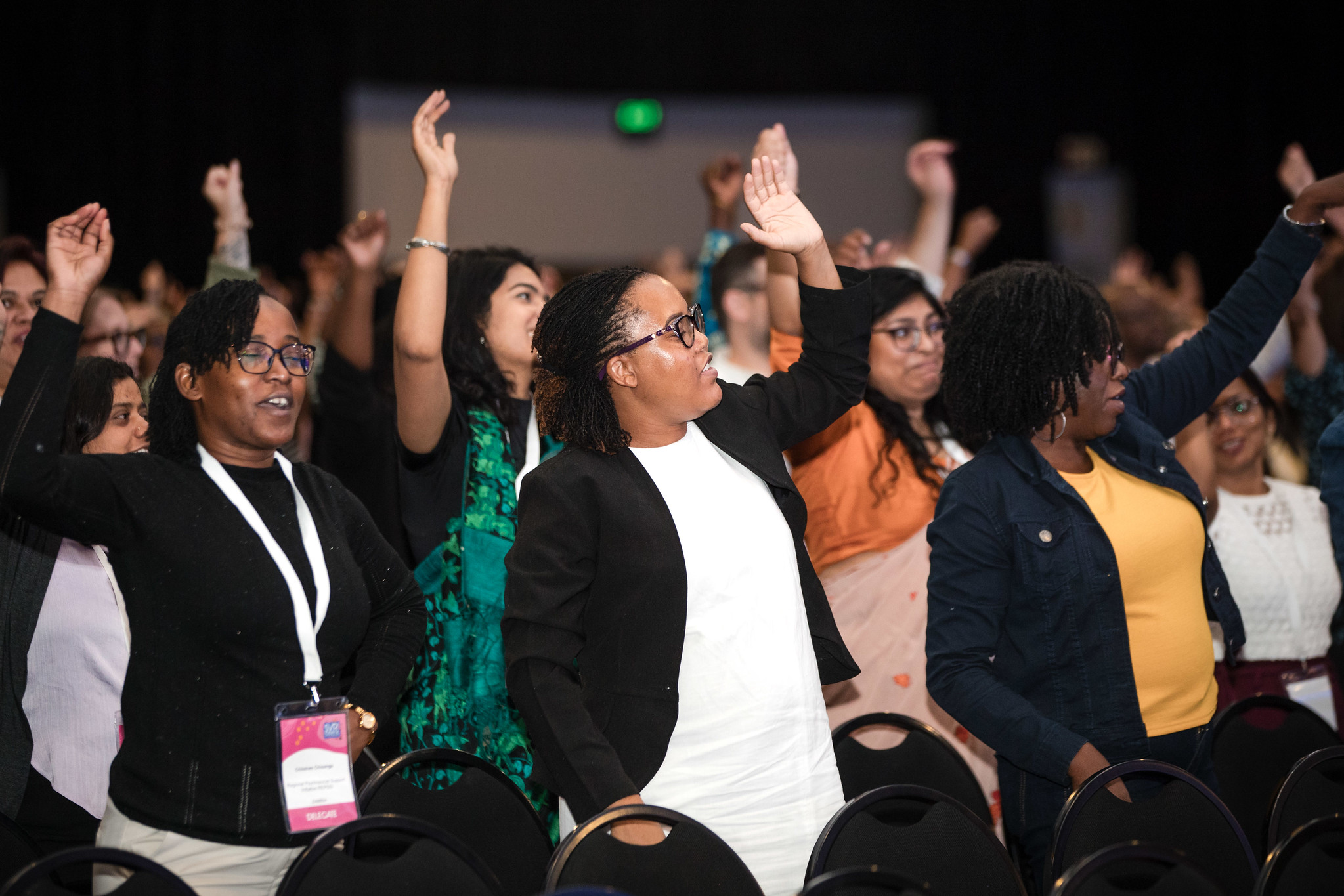
Participants engaging in activism at the Sexual Violence Research Initiative Forum 2024 (SVRI 2024)
Research to build the case for urgent action
UNGEI and SVRI recently launched a white paper ‘Prevention Of Sexual Violence In Education Settings’, with valuable inputs from the Global Working Group to End School-Related Gender-Based Violence. Research and evidence can illuminate this often hidden and taboo issue. With this white paper, we highlight evidence, unpack the nature of the problem, and articulate the need to work across levels of society to act now and end the scourge.
We focus on critical aspects of sexual violence in education settings:
- Nature and Scope: Sexual violence includes forced, non-consensual, or exploitative sexual acts occurring in, around, or related to education environments. Perpetrators can include teachers, staff, learners, parents, and others within the education context. Victims or survivors may also belong to any of these groups.
- Systemic Inequalities and Norms: We identify gender inequality, harmful gender norms and power imbalances as key drivers of sexual violence in education settings. These issues are compounded by inadequate mechanisms for complaints and accountability, as well as a lack of preventive measures.
- Evidence Gaps: Data gaps on the extent of sexual violence in education settings, particularly in low- and middle-income countries, hamper effective policies and programmes to address the issue. Without robust data, we cannot fully understand the scope of the problem or adequately represent the voices of the survivors, activists, or children today.
- Promising Interventions: Whole-school approaches, community-based interventions, and other programmes integrated into school curricula to prevent and respond to sexual violence help us to learn what works for specific contexts.
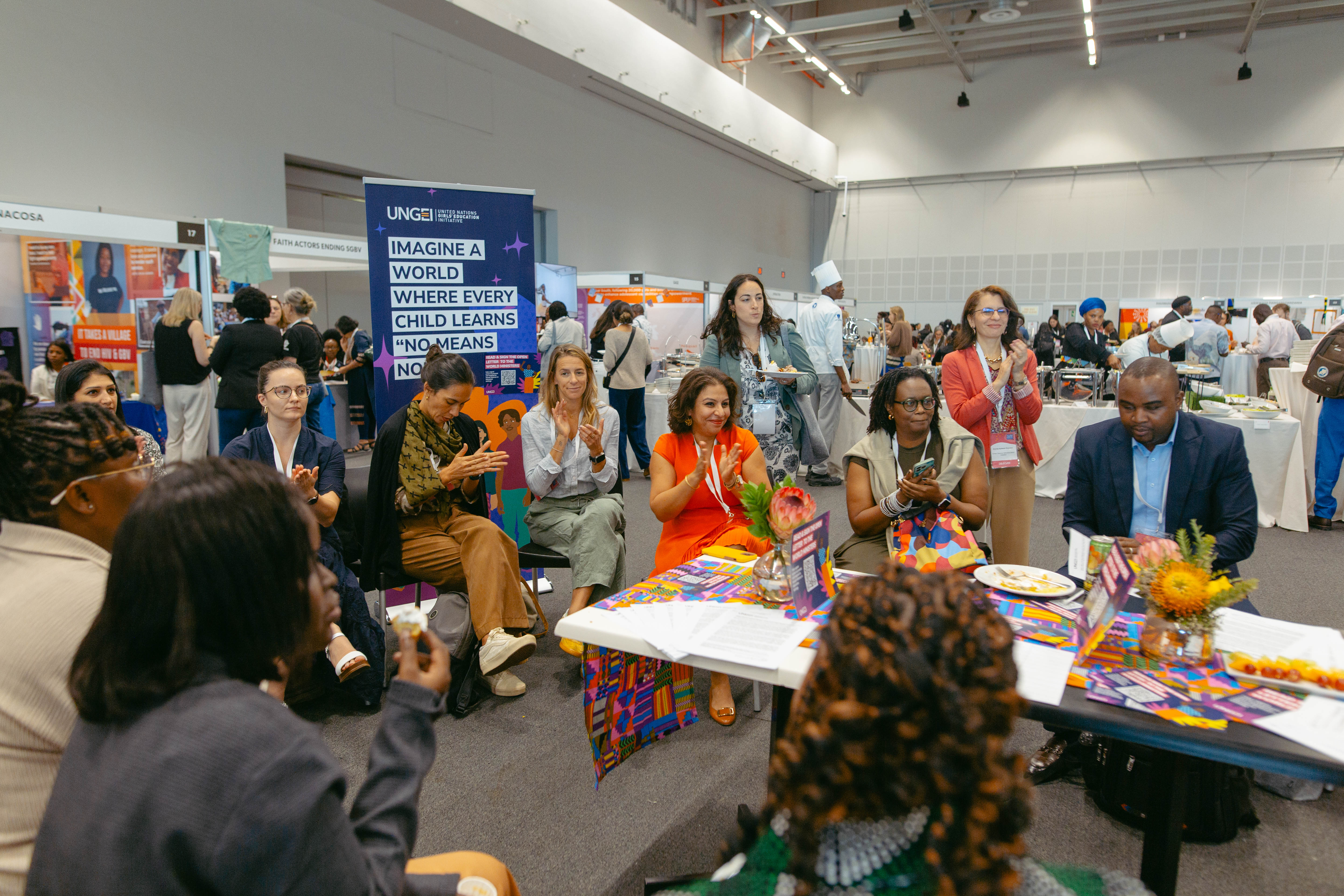 At the SVRI Forum 2024, UNGEI led an inspiring session fostering solidarity and collective action to end sexual violence in education.
At the SVRI Forum 2024, UNGEI led an inspiring session fostering solidarity and collective action to end sexual violence in education.
From evidence to call to action
Building on the white paper, UNGEI launched an open letter to end sexual violence in education settings written and endorsed by civil society organizations young activists, academia, several governments and multilateral organizations. The open letter was a unified call to action addressed to governments attending the First Ministerial Conference to End Violence Against Children in November 2024 in Colombia. Having received over 200 signatures from 130 organizations as of December 2024, the open letter continues to urge governments to:
- Ensure strong policymaking at the national level: Develop and enforce policies that address sexual violence in education settings, ensuring effective accountability mechanisms and survivor centred support systems.
- Implement comprehensive prevention and response strategies: Adopt whole-school approaches and implement comprehensive strategies that involve all members of the school community in preventing and responding to violence.
- Invest in Research and Data Collection: Support locally led research on the prevalence and drivers of sexual violence in education settings and to identify effective, scalable solutions to address this issue.
The open letter has been gaining momentum through key global events, including the third annual convening of the Feminist Network for Gender Transformative Education, the SVRI Forum, and the Ministerial Conference on Ending Violence Against Children. These moments inspired youth, CSOs, academia, and governments to take action to address sexual violence in education settings.
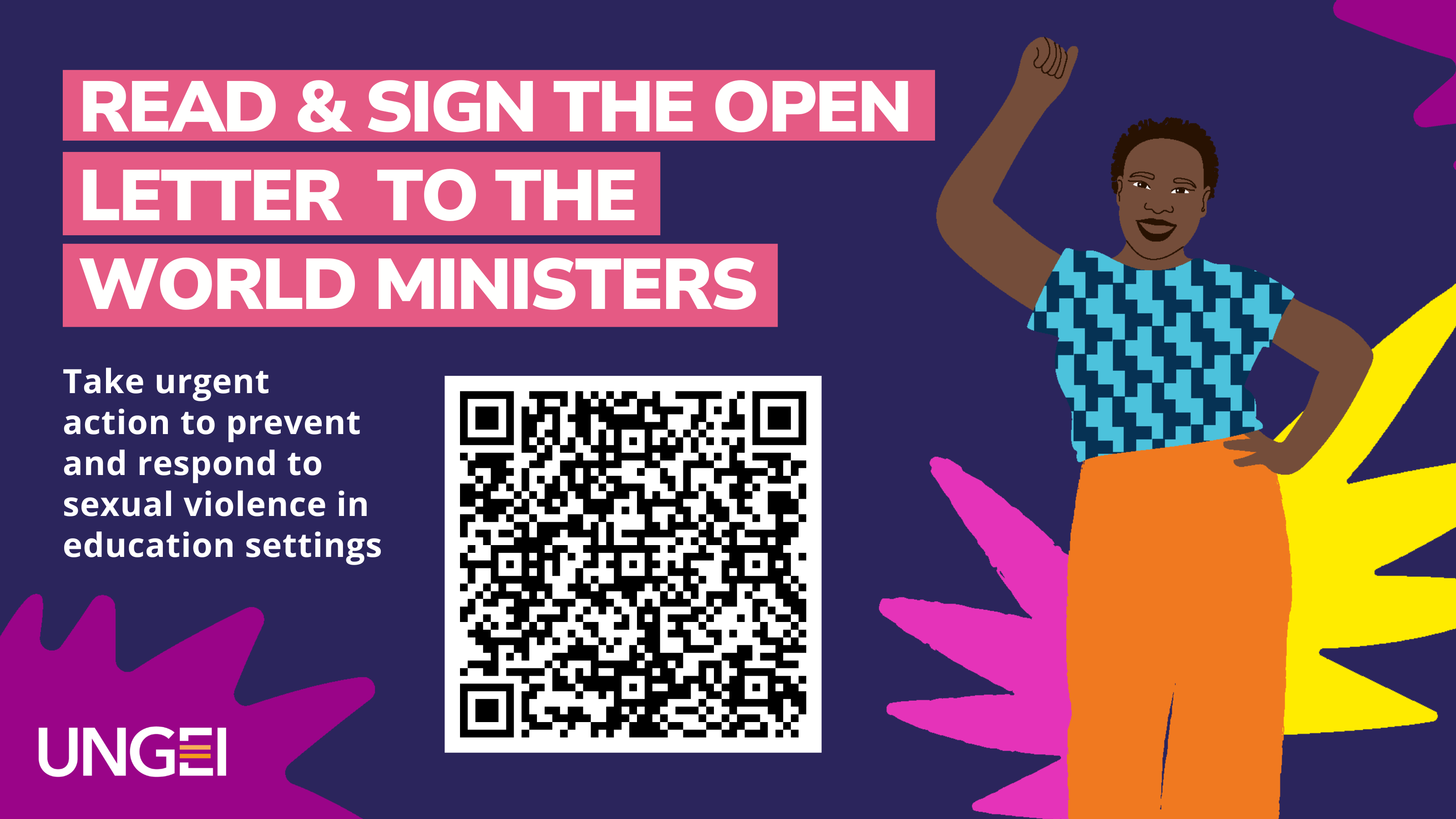
FemNet4GTE underscored a powerful and necessary truth: no matter how uncomfortable the conversation may be, we must disrupt the cultures, gender inequalities, and harmful norms that allow violence against girls in schools to thrive and be seen as their inevitable fate. It is our collective responsibility to challenge these injustices and create education environments where safety, dignity, and equality are not aspirations but guarantees. Let this discomfort propel us toward transformative action.”
- Ronel, feminist academic & activist, South Africa
Over 130 governments, 80 ministers, and 1,400 allies, including children, youth, survivors, academic and philanthropists participated in the Bogota Ministerial conference, where governments made 44 pledges on Safe and Enabling Learning Environments. Country pledges included both policy and financial commitments, with 14 countries specifically committing to preventing, responding, and ending sexual violence, notably Bhutan, Democratic Republic of Congo, Estonia, Gabon, Guatemala, Japan, Kyrgyzstan, Namibia, Nigeria, Paraguay, Trinidad and Tobago, United Kingdom of Great Britain and Northern Ireland, Zambia and Zimbabwe.
Sign the open letter and encourage your government to do so. The time to act is now.
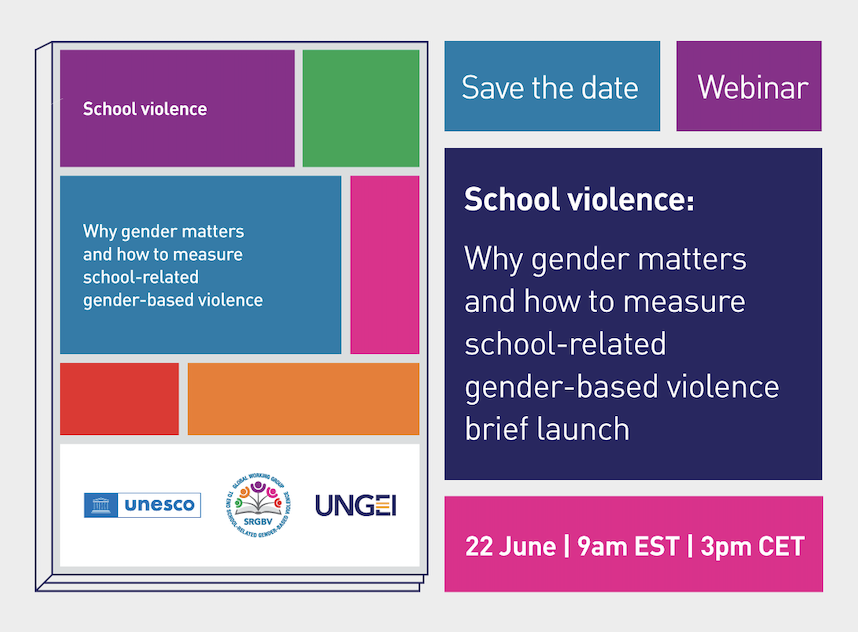
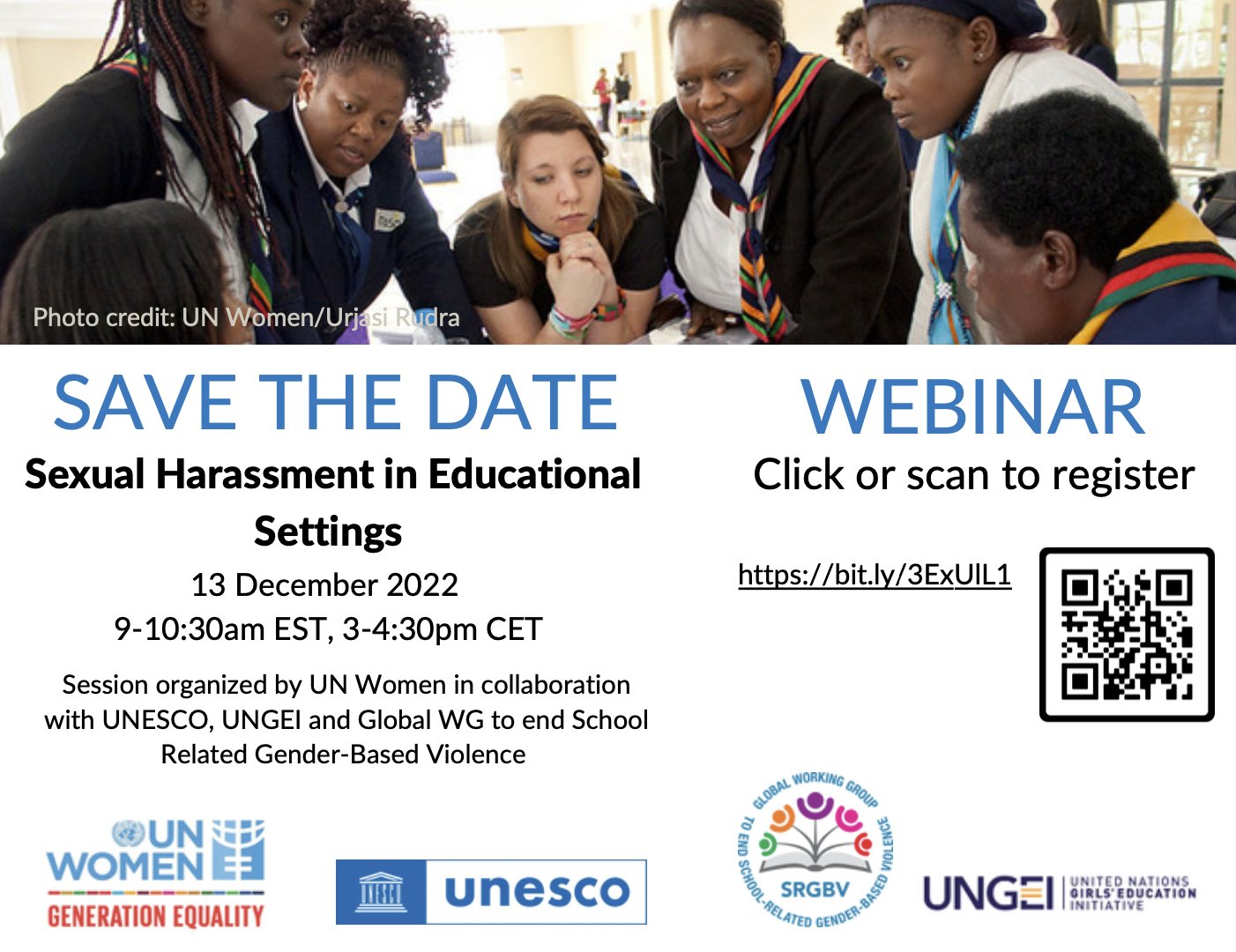
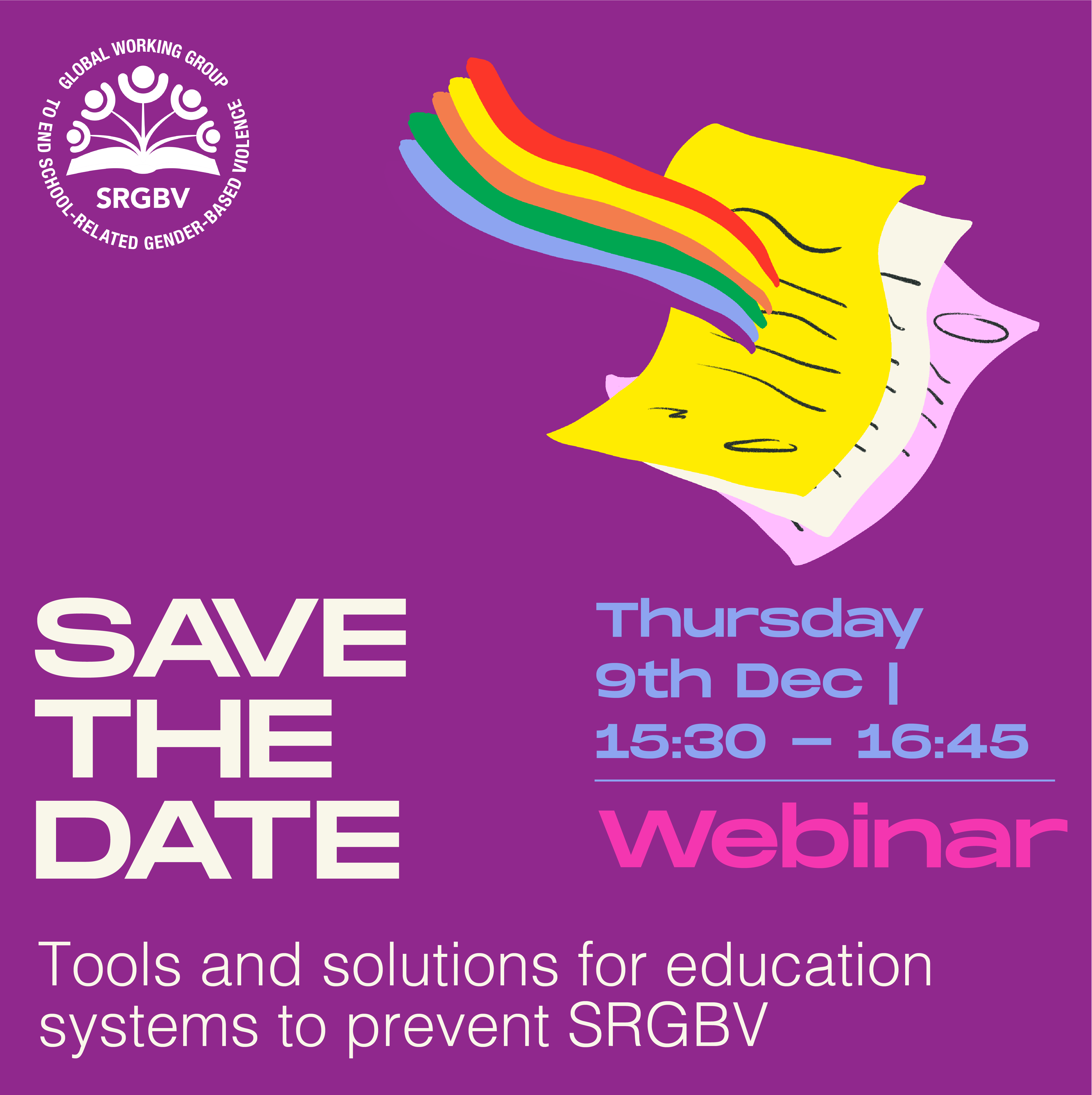
 English
English العربية
العربية Български
Български Hrvatski
Hrvatski Čeština
Čeština Dansk
Dansk Nederlands
Nederlands Suomi
Suomi Français
Français Deutsch
Deutsch Ελληνικά
Ελληνικά हिन्दी
हिन्दी Italiano
Italiano Română
Română Русский
Русский Español
Español Maltese
Maltese Zulu
Zulu አማርኛ
አማርኛ